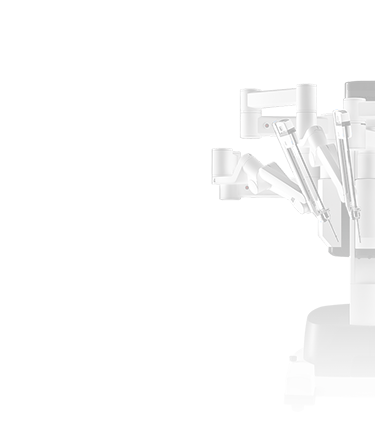Preparation for the surgery
Patients in the pre-, peri- and post-operative period are under the care of an interdisciplinary team consisting of a surgeon, an anaesthesiologist, a psychooncologist, physiotherapist and dietician as well as other specialty doctors depending on the overall health status. The necessary preparations include assessment of full blood count and blood smear and of kidney function as well as cross-matching.
Particular attention is given assessment made by anaesthesiologists and other specialist of patients with respiratory and respiratory diseases as well as those suffering from congestive heart failure and valvular insufficiency due to the increased risk of complications in their cases.
The anaesthesiologist starts perioperational antithrombotic therapy. Depending on the patient’s overall condition, they may also be assisted by other specialist in order to put in place the optimal pharmacological procedure.
The psychooncologist supports patients with cancers as well as their loved ones during the whole journey through the disease. They may also assist in minimising the adverse mental effects that the patient and his family experience in connection with the disease as well as in building a system of support to the patient, both internal (sense of worth, optimism, creativity and sense of humour) and external (family, significant others, friends and fellow workers). They also provides instruction on how to transform the attitude and thoughts that have a weakening effect on the patient and on reducing techniques, such as visualisations, relaxation or breathing exercises.
The physiotherapist works with the therapy and functional assessment of the pelvic floor and the overall condition of the patient. Physiotherapy used before and after the surgical intervention enables appropriate preparation for the procedure and maintaining its effects. Rehabilitated patients have a faster recovery rate with regard to the sexual function and urinary continence. Appropriate physiotherapy on the day of the procedure prevents complications in the form of pneumonia and venous thrombosis.
Of great importance for the recovery after cancerous diseases or extensive surgical interventions is correctly balanced nutrition. Therefore, the therapeutic team includes a dietician.
The procedure
Surgical resection of a renal tumour can be performed laparoscopically with the assistance of the robot. In this method, a camera and special instruments which are used to perform the entire surgery are inserted through 3-4 small (approx. 1 cm) holes. Afterwards, the resected tumour or kidney is placed in a special bag and taken outside, and then it is sent to a pathology laboratory for careful examination in order to determine the degree of malignancy and the nature of the lesion (the final report from the examination is usually available after 14 days). This minimally invasive method makes it possible to shorten the time spent at hospital and speed up recovery. It is also associated with reduced postoperative pain and ensures better cosmetic effect.
Benefits for patients
The robotic system is a better tool as compared with the classical or laparoscopic access, for dissecting and removing lymph nodes and providing protection of the autonomic nerves during oncological procedures. Robot-assisted surgery provides urologic oncologists with the possibility of performing minimally invasive, precise and complete procedures with good oncological clearance.
In comparison with procedures performed using the classical or partly laparoscopic methods, the use of a robot enables:
- fewer number of complications
- performing nephrectomy in a minimally invasive manner
- reduction of postoperative pain
- reduced blood loss
- better cosmetic effect
- shorter stay at hospital
- faster return to the daily routine and professional life
- the ability to manipulate data with loaded interviews

 +48 785 054 460
+48 785 054 460 










